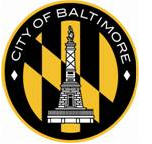Impacted by the Federal Shutdown? Get Resources and Support
We’re launching a new website for Baltimore City!
Check out the new beta site and share your feedback.

FOR IMMEDIATE RELEASE
BALTIMORE, MD. (Friday, July 29, 2022) - Today, the Mayor’s Office of Homeless Services (MOHS), in coordination with the Baltimore Continuum of Care (CoC), released the 2022 Baltimore City Point-In-Time (PIT) Count Report. The report shares the results of the PIT Count and survey of people experiencing both sheltered and unsheltered homelessness on a single night that took place on February 26, 2022.
The Mayor’s Office of Homeless Services (MOHS), in coordination with the Baltimore Continuum of Care (CoC), released the 2022 Baltimore City Point-In-Time (PIT) Count Report.
The PIT Count helps the City identify and connect individuals, families, and youth experiencing homelessness to much-needed housing and support services. It is a critical planning tool for the CoC and involves mobilizing providers and volunteers for canvassing efforts. The results from the count inform policy and provide critical data that helps Baltimore City access vital Federal and State homeless services resources.
On the night of the count, a total of 1,597 people were counted in emergency shelters, transitional housing, and unsheltered spaces such as encampments. This is down from 2,193 people in 2020 and follows a four-year downward trend.
"Through the use of Federal Emergency Solutions Grant – COVID-19 (ESG-CV) funding, we were able to add more than 160 additional housing options for neighbors to exit homelessness. These non-congregate spaces were critical to reducing the spread of COVID-19 among this vulnerable population" said Mayor Brandon M. Scott. "We have committed American Rescue Plan Act (ARPA) funding to continue this downward trend and follow through on our commitments to our residents by making homelessness rare, brief, and non-recurring."
The U.S. Department of Housing and Urban Development (HUD) requires all CoC communities that receive federal funding for homelessness to conduct a PIT count at least biennially during the last ten days of January. Baltimore City’s CoC committed to conducting annual counts but received a waiver to forego the 2021 and delay the 2022 counts until late February as a COVID-19 safety precaution. The data collected during the PIT Count is included in the Annual Homeless Assessment Report (AHAR) to Congress.
Locally, the data is used to guide programs and policies, and identify gaps in the homeless response system. "Data from the count helps guide our strategic plan, but it is important to remember that the PIT Count results are only a snapshot of homelessness in our City," said Irene Agustin, Director of MOHS. "To further understand Baltimore’s homeless population, we use data tools – such as the Data Dashboard – to monitor the homeless response system. This helps us identify barriers, backlogs, and trends within the system on an ongoing basis."
The full 2022 PIT Count Report is available on the MOHS Website.
"We cannot thank the volunteers enough who came together to ensure that every person unsheltered on February 26th was engaged, counted, and directed to resources as requested," said Janice Miller, CoC Board Chair. "The Continuum of Care will continue to work with the City of Baltimore to make homelessness rare, brief and non-recurring."